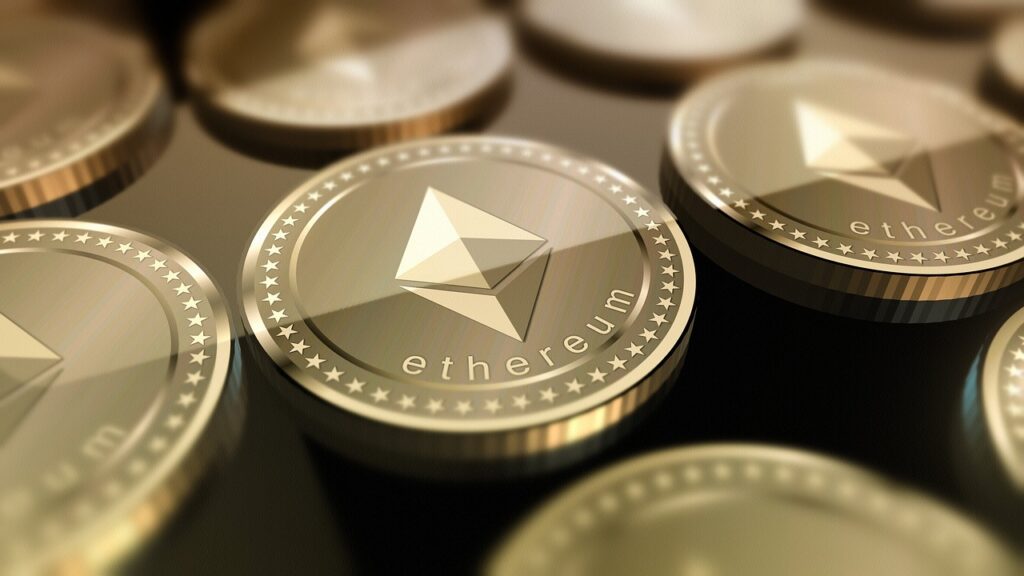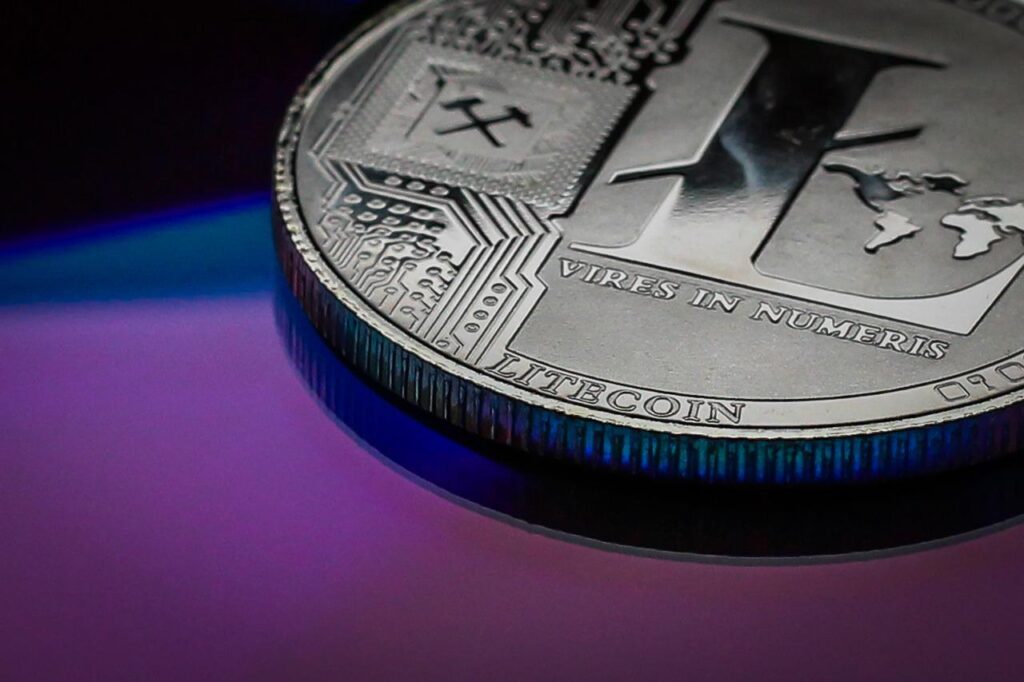
- HI EVERYONE, AND WELCOME BACK! SO WHAT ARE ALTCOINS?
- bACKGROUND:
- So what are altcoins exactly?
- What are the risks of investing in altcoins?
- Types of Altcoins
- MEMECOINS
- Platform Coins:
- Payment Coins:
- Stablecoins:
- Addtional altcoin catagories
- Derivatives Tokens:
- What's the future for altcoins?
- Risk On, Risk Off
- Outtlook and final thoughts;
- Frequently Asked Questions.
- UP NEXT
- REFERENCES
HI EVERYONE, AND WELCOME BACK! SO WHAT ARE ALTCOINS?
- HI EVERYONE, AND WELCOME BACK! SO WHAT ARE ALTCOINS?
- bACKGROUND:
- So what are altcoins exactly?
- What are the risks of investing in altcoins?
- Types of Altcoins
- MEMECOINS
- Platform Coins:
- Payment Coins:
- Stablecoins:
- Addtional altcoin catagories
- Derivatives Tokens:
- What's the future for altcoins?
- Risk On, Risk Off
- Outtlook and final thoughts;
- Frequently Asked Questions.
- UP NEXT
- REFERENCES
Altcoins are cryptocurrencies that are not Bitcoin. Most altcoins are based on the Bitcoin codebase, but there are a few that use different codes. Altcoins were created to solve specific problems or to fill a specific need that the Bitcoin network could not. There are thousands of altcoins, and most of them are not worth anything. However, there are a few altcoins that have become quite popular and have a large market cap. Some of the more popular altcoins include Ethereum, XRP, Cardano, Polkadot, and Binance Coin. Altcoins can be traded on cryptocurrency exchanges just like Bitcoin.

bACKGROUND:
Bitcoin is the first and most well-known cryptocurrency, but it is not the only one. There are thousands of other cryptocurrencies that exist, and they are collectively known as altcoins. The term “altcoin” is short for “alternative coin” Altcoins are cryptocurrency alternatives to Bitcoin.
Altcoins are cryptocurrencies that exist outside of the Bitcoin network and can be created through a variety of methods, including but not limited to:
– Forking the Bitcoin codebase and creating a new cryptocurrency
– Creating a new blockchain network
– Building on top of an existing blockchain platform
While they share some similarities with Bitcoin, they also have their own unique features and advantages. Each altcoin has its own strengths and weaknesses, and it’s important to do your own research before investing in any cryptocurrency. But if you’re looking for an alternative to Bitcoin and your risk tolerance is high, many altcoins are definitely worth considering, but many are not.
For instance, Litecoin is designed to be faster and more lightweight than Bitcoin. Ethereum offers smart contract functionality, allowing developers to build decentralized applications on its network. Ripple was created to provide banks with a blockchain-based solution for international payments
So what are altcoins exactly?
So what are altcoins exactly?
When it comes to cryptocurrencies, Bitcoin and Ethereum are usually the first coins that come to mind. But as of February 2022, there were over 17,000 types of cryptocurrencies being traded, according to price-tracking website CoinMarketCap.
Bitcoin made up nearly half of the total crypto market cap, with Ethereum making up nearly a quarter. That left altcoins with a remaining market share of roughly 40%.
These can be divided into two main categories: utility tokens and security tokens.
Utility tokens are those that provide users with a specific service or function within a blockchain-based ecosystem.
On the other hand, security tokens are tokenized versions of real-world assets that can be traded on exchanges like traditional stocks and bonds.
Given the vast number of altcoins available, it’s no wonder that experts often advise investors to stick to the more well-known Bitcoin and Ethereum. While altcoins may hold some promise, they also come with a very high degree of risk, which is why sticking to the top two digital currencies is often seen as a safer bet. There are a few reasons for this;
First, it can be incredibly difficult to determine which altcoins are legitimate and which are simply scams. With so many options out there, it’s hard to know which ones are worth investing in and which ones aren’t.
Second, even if you do find a legitimate altcoin, there’s no guarantee that it will be successful. The vast majority of altcoins fail to achieve any significant level of traction and eventually disappear into the digital ether.
Finally, even if an altcoin is successful, it’s unlikely to generate returns that match those of Bitcoin or Ethereum. In other words, there’s simply no reason to take on the additional risk associated with investing in altcoins when you can stick with the two top coins and still enjoy strong returns.
What makes altcoins different from Bitcoin?
Altcoins differ from Bitcoin in a number of ways. Some of the most notable differences include:
Transaction speed:
Altcoins typically have faster transaction speeds than Bitcoin. This is due to their smaller market size and lower transaction volume.
Privacy features: Many altcoins offer privacy-focused features that are not available on Bitcoin. These can include things like anonymous transactions and private data storage.
Scalability:
Some altcoins are designed to be more scalable than Bitcoin. This means that they can handle a larger number of transactions per second without sacrificing decentralization or security.
Price:
Altcoins tend to be less expensive than Bitcoin. This is due to their smaller market size and lower trading volume.
What are the benefits of investing in altcoins?
The main benefit of investing in altcoins is that you have the potential to make a lot of money. With the right investment, you could see significant returns in a short period of time. Altcoins also offer investors a lot of variety. There are thousands of different altcoins available, each with its own unique features and potential benefits. This provides investors with the opportunity to find an altcoin that best suits their needs and investment goals.
What are the risks of investing in altcoins?
The biggest risk of investing in altcoins is that they are highly volatile. This means that their prices can fluctuate wildly, and you could lose a significant amount of money if you invest at the wrong time. Another risk to consider is that many altcoins are not well known or trusted. This can make them more susceptible to fraud and scams. It’s important to do your research before investing in any altcoin to ensure that you are investing in a legitimate project.
Types of Altcoins
MEMECOINS

Memecoins are altcoins that focus on community. They claim to providing users with a better way to store and use data. Memecoins are built on top of blockchain technology and aim to provide a more efficient way to store data than traditional centralized databases.
Examples of memecoins include Dogecoin,Shibainu, Filecoin, SiaCoin, and Storj.
Platform Coins:

Platform coins are altcoins that provide users with a platform to build decentralized applications (dApps). dApps are applications that run on a decentralized network, and they have the potential to disrupt a wide range of industries.
Examples of platform coins include Ethereum, EOS, and Cardano.
Payment Coins:

Payment coins are altcoins that focus on providing users with a faster and cheaper way to make payments. Payment coins are built on top of blockchain technology and aim to provide a more efficient way to send and receive payments than traditional payment methods.
Examples of payment coins include Litecoin, Bitcoin Cash, and Monero.
Stablecoins:

Stablecoins are a type of cryptocurrency that is designed to maintain a stable value. Stablecoins are backed by assets such as fiat currencies, gold, or silver, and they aim to provide a stable alternative to traditional fiat currencies.
Examples of stablecoins include Tether, USD Coin, and Paxos Standard.
Addtional altcoin catagories

Utility Tokens:
Utility tokens are a type of cryptocurrency that is designed to be used as a utility on a blockchain platform. Utility tokens give users access to a product or service and can be used to perform transactions on the platform.
Examples of utility tokens include Augur, Golem, and 0x.
Governance Tokens:
Governance tokens are a type of cryptocurrency that is used to vote on proposals and make decisions about a blockchain platform. Governance tokens give holders a say in how the platform is run and can be used to make decisions about changes to the platform.
Examples of governance tokens include Tezos, Dash, and Decred.
Security Tokens:
Security tokens are a type of cryptocurrency that is backed by real-world assets. Security tokens are subject to regulations and can be used to trade stocks, bonds, and other assets.
Examples of security tokens include Polymath, Harbor, and Securrency.
Equity Tokens:
Equity tokens are a type of security token that represents ownership in a company. Equity tokens give holders a right to participate in the profits or losses of the company.
Examples of equity tokens include BnkToTheFuture and Blockchain Capital.
Debt Tokens:
Debt tokens are a type of security token that represents a loan or debt obligation. Debt tokens can be used to borrow or lend money, and they are subject to interest rates.
Examples of debt tokens include NEXO and BlockFi.
Derivatives Tokens:
Derivatives tokens are a type of security token that represents a contract for the future purchase or sale of an asset. Derivatives tokens are subject to the terms of the contract, and they can be used to trade a wide range of assets.
Examples of derivatives tokens includeLedgerX and Deribit.
What's the future for altcoins?

The future of altcoins is difficult to predict. However, with the right investment, you could see significant returns in the years to come. Many experts believe that the cryptocurrency market will continue to grow and that altcoins will play a major role in this growth.
If you’re thinking about investing in altcoins, it’s important to do your research and invest wisely. With the right investment, you could see significant returns in the years to come. The future of altcoins is difficult to predict. However, with the right investment, you could see significant returns in the years to come.
The cryptocurrency market is still in its early stages and is very volatile. This means that prices can fluctuate wildly and that you could lose a lot of money if you’re not careful. However, if you’re willing to take on the risk, there’s the potential to make a lot of money.
Many experts believe that the market will continue to grow in the future and that altcoins will play a major role in this growth. If you’re thinking about investing in altcoins, it’s important to do your research and invest wisely. With the right investment, you could see significant returns in the years to come.
Altcoins that I’m choosing as investments:
USDC and Ethereum. To start, I’m not a financial advisor so I can’t recommend projects or offer financial advice. It’s also vital to do your own research.
Why I’m choosing them?
3 Months ago, I would have told you that investing in the top 10 Altcoins was a safe play, even in a Bear winter, but given Terra Luna’s Disastrous, all bets are off.
Risk On, Risk Off
But, with that said, I’m “risk-off”. I’m choosing USDC and Ethereum only. I use AVAX CRONOS BNB and MATIC for utility and gas fees, but all of my profit is going into altcoins is going into USDC and Ethereum.
Outtlook and final thoughts;

In the early days of cryptocurrency, Bitcoin was the undisputed king of the hill. It was the first coin to be minted on the blockchain, and it quickly established itself as the most valuable and well-known digital currency.
However, that left other coins, known as “altcoins,” with a lot of catching up to do. While Bitcoin remains the most prominent cryptocurrency, there are now thousands of different altcoins available on the market.
Some of these coins have gained significant traction and value, while others have failed to gain much traction at all. Nonetheless, all altcoins are still playing catch-up to Bitcoin in terms of both reputation and value. And given Bitcoin’s current dominance of the market, it’s unlikely that any altcoin will ever overtake it as the king of cryptocurrency.


Frequently Asked Questions.
An ICO, or initial coin offering, is a type of fundraising event in which a new cryptocurrency project sells tokens to investors in exchange for funding. ICOs are a popular way for cryptocurrency startups to raise money, and they have become increasingly popular in recent years.
A token is a digital asset that can be used to perform transactions on a blockchain platform. Tokens are typically issued by a project during an ICO and can be used to purchase goods or services from the project.
A fork is a change to the software of a cryptocurrency that creates two separate versions of the blockchain. Forks can be either soft forks or hard forks.
A soft fork is a change to the software that is backward-compatible, meaning that it does not invalidate previous blocks. A hard fork is a change to the software that is not backward-compatible, meaning that it invalidates previous blocks.
Forks can occur when there is a disagreement among developers about how to improve the cryptocurrency. Forks can also be created intentionally by a development team in order to add new features to a cryptocurrency.

